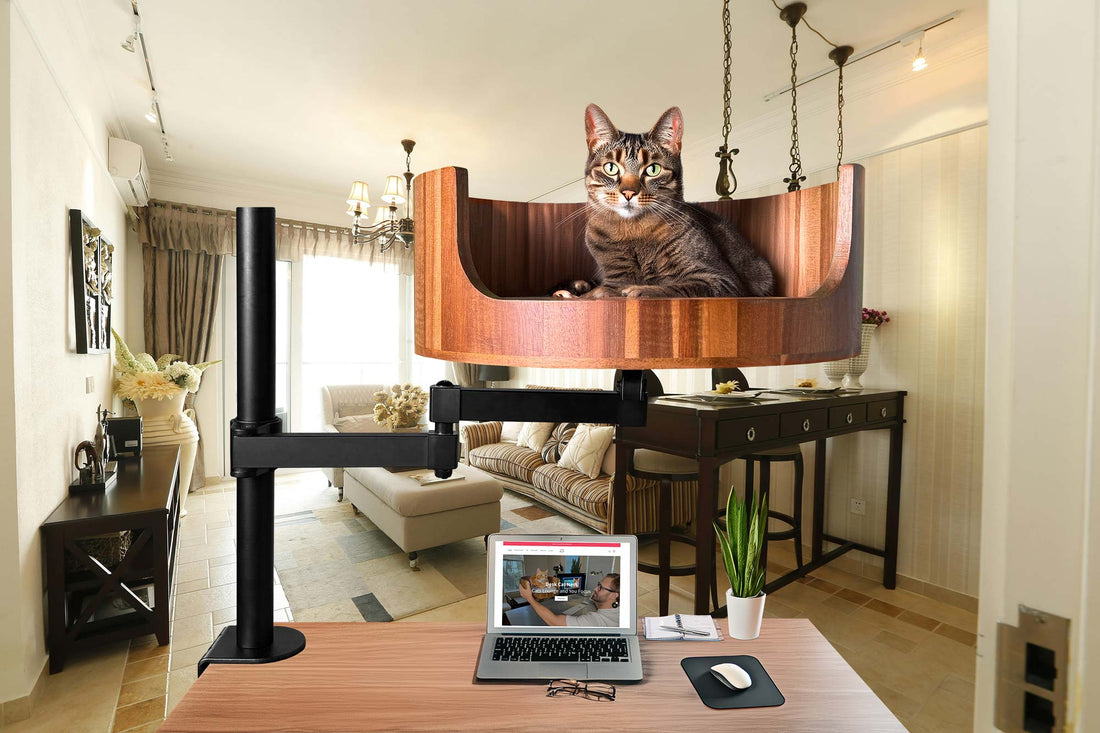
My Cat Just Ate a Fly: A Surprising Moment in Nature
Share
In the tranquility of my home office, my cat suddenly pounced with lightning speed, catching a fly mid-air. This seemingly mundane moment turned into a fascinating display of nature's predatory instincts, as my typically lazy feline transformed into a stealthy hunter. Witnessing this unexpected event sparked my curiosity about the natural behaviors of domesticated cats and their innate instincts.
In this article, we delve into the surprising moments that occur when our pets tap into their primal instincts. From the seemingly innocent act of catching a fly to the more complex behaviors exhibited by cats in their natural environment, we explore how our furry companions retain their predatory instincts despite their cozy domestication. Discovering the ways in which our pets interact with the world around them sheds light on the fascinating intersection of nature and nurture that shapes their unique personalities. Join us on a journey of exploration as we uncover the hidden depths of our feline friends' instincts and behaviors.
1. Cats have a natural instinct to hunt and catch prey, even if it's just a small fly.
2. Watching your cat engage in these instinctual behaviors can be both surprising and entertaining.
3. Cats use a variety of tactics to catch flies, showcasing their agility and focus.
4. It's important to monitor your cat's interactions with insects to ensure they are not harmful.
5. Observing your cat's behavior can provide insight into their natural instincts and behaviors.
Understanding the Behavior
Cats are natural predators, and hunting insects is a common behavior for them. When a cat catches and eats a fly, this behavior is attributed to their instinctual hunting skills. Cats have sharp reflexes and are attracted to moving objects, making flies the perfect prey for them. Additionally, flies are small and fast-moving, providing cats with a challenge that stimulates their predatory instincts. It is not uncommon for cats to exhibit this behavior, and it is considered a normal part of their natural behavior.
Potential Risks and Health Concerns
While it may seem harmless for a cat to eat a fly, there are potential risks and health concerns associated with this behavior. Flies can carry diseases, parasites, and bacteria that can be harmful to cats if ingested. Eating a fly that has been in contact with chemicals, pesticides, or other toxins can also pose health risks to cats. Ingesting a fly's exoskeleton or wings can lead to digestive issues or blockages in a cat's system. It is important to monitor your cat's behavior and watch for any signs of illness or discomfort after they eat a fly.
Preventative Measures and Training
To prevent your cat from eating flies, it is important to keep your home clean and free of insects. Regularly clean up food crumbs, spills, and trash that may attract flies. Use screens on windows and doors to keep flies and other insects out of your living space. You can also use natural insect repellents or deterrents to help keep flies away from your cat. Training your cat to avoid eating flies can be done through positive reinforcement and redirecting their attention to other toys or activities. With proper training and environmental management, you can help reduce the chances of your cat eating flies.
## FAQ
### Is it normal for cats to eat flies?
Yes, it is quite common for cats to eat flies. Cats have a natural instinct to hunt and catch small insects like flies.
### Can eating flies harm my cat?
In most cases, eating a fly should not harm your cat. Flies are generally safe for cats to eat, as long as they are not poisonous or contaminated with harmful substances.
### Should I be concerned if my cat ate a fly?
If your cat has eaten a fly, there is usually no need to be worried. However, if your cat starts showing signs of illness such as vomiting, diarrhea, or lethargy, it is best to consult a veterinarian.
### Will the Desk Cat Nest help prevent my cat from eating flies?
The Desk Cat Nest is designed to provide a comfortable and secure place for your cat to rest and play. While it may not completely prevent your cat from eating flies, it can help keep your cat entertained and occupied indoors.
### How can I discourage my cat from eating flies?
To discourage your cat from eating flies, you can try using cat-safe insect repellents, keeping windows and doors closed to prevent flies from entering your home, and providing plenty of toys and activities to keep your cat engaged.
In conclusion, if your cat just ate a fly, it's important to provide them with a comfortable and safe space to relax and recover. The Desk Cat Bed is the perfect solution, offering a cozy and elevated spot for your cat to rest and recuperate. With its soft cushioning and sturdy design, this cat bed provides the perfect combination of comfort and security for your furry friend. Invest in a Desk Cat Bed today and ensure your cat has the best possible environment for healing after their unexpected snack.



















































